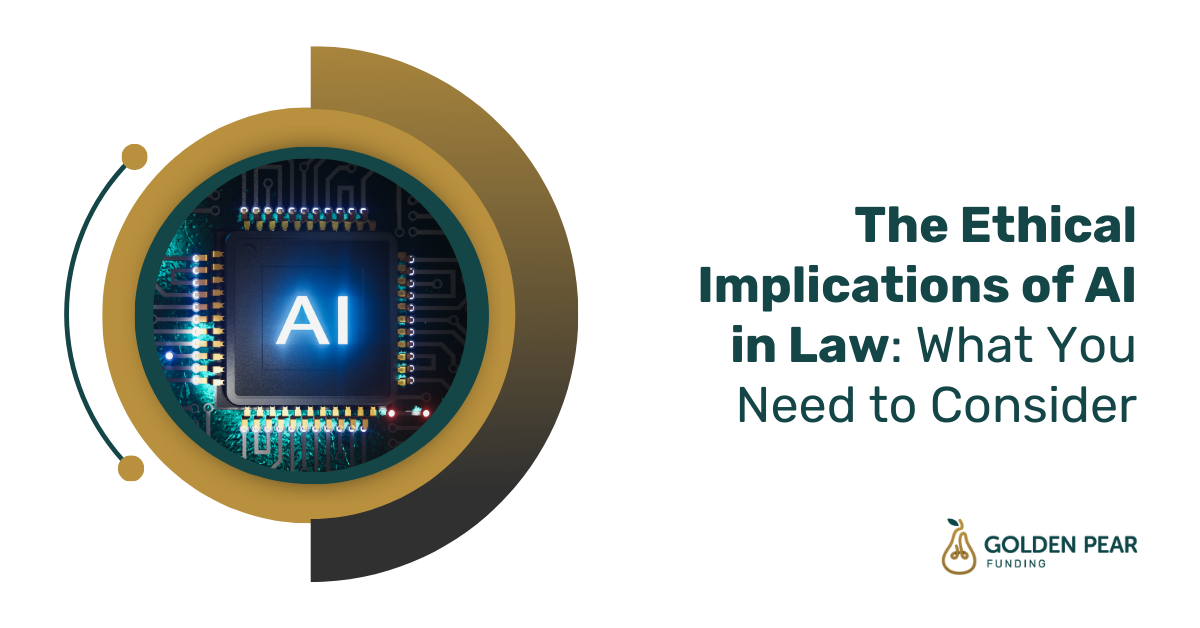The Ethical Implications of AI in Law: What You Need to Consider

Artificial intelligence (AI) is transforming industries worldwide, and the legal sector is no exception. From automating routine tasks to predicting case outcomes, AI offers numerous benefits for law firms. However, with great power comes great responsibility. As AI becomes more integrated into legal practices, it is crucial to consider the ethical implications. This article explores the key ethical concerns associated with AI in law and what legal professionals need to consider.
1. Bias and Fairness
AI systems are only as good as the data they are trained on. If the training data contains biases, the AI system can perpetuate and even amplify these biases. This is particularly concerning in legal, where decisions can significantly impact individuals' lives. Legal professionals must ensure that AI systems are trained on diverse and representative datasets to promote fairness and justice.
Consideration:
- Regularly audit AI systems for bias.
- Implement procedures to mitigate identified biases.
- Use diverse datasets that represent different demographics and viewpoints.
2. Transparency and Accountability
AI algorithms can be complex and opaque, making understanding how they arrive at specific decisions difficult. This lack of transparency can be problematic in a legal context, where accountability is paramount. Legal professionals must advocate for AI systems that provide clear, understandable explanations for their decisions.
Consideration:
- Choose AI systems that prioritize explainability.
- Maintain detailed documentation of how AI systems are used in decision-making processes.
- Establish clear lines of accountability for AI-generated outcomes.
3. Data Privacy and Security
AI systems often require large amounts of data, raising concerns about privacy and security. Legal professionals must ensure that AI complies with data protection regulations and safeguards sensitive information against breaches.
Consideration:
- Implement robust data encryption and security measures.
- Ensure compliance with relevant data protection laws, such as GDPR or CCPA.
- Regularly update and audit security protocols to protect against emerging threats.
4. Informed Consent
Clients and stakeholders should know when and how AI is used in their cases. Informed consent is a fundamental ethical principle that must be upheld, ensuring that clients understand the role of AI in their legal matters.
Consideration:
- Communicate the use of AI to clients and obtain their consent.
- Provide detailed explanations of how AI contributes to case management and decision-making.
- Offer clients the option to opt out of AI-driven processes if they have concerns.
5. Professional Competence
As AI becomes more prevalent in the legal industry, legal professionals must stay informed about its capabilities and limitations. This requires ongoing education and training to ensure that lawyers can integrate AI into their practice competently.
Consideration:
- Invest in continuous professional development related to AI and legal technology.
- Stay updated on the latest advancements and best practices in AI.
- Collaborate with AI experts to enhance understanding and implementation.
Conclusion
The integration of AI into the legal field presents both opportunities and challenges. While AI can potentially improve efficiency and outcomes, it raises significant ethical concerns. Legal professionals must navigate these challenges carefully, ensuring that AI is used responsibly and ethically. By addressing issues of bias, transparency, data privacy, informed consent, and professional competence, the legal industry can harness the power of AI while upholding its commitment to justice and fairness.

.png)
